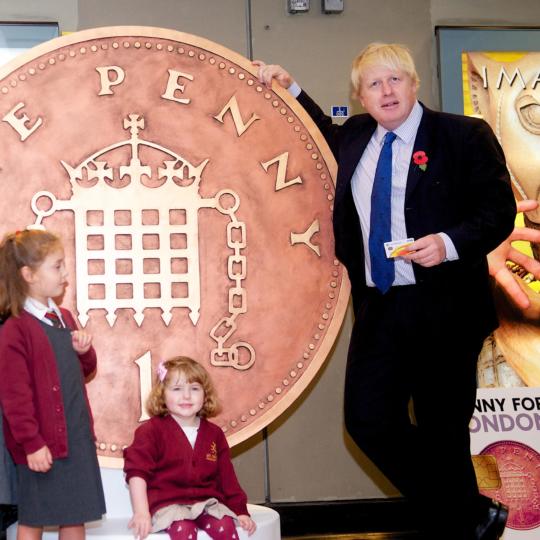A micro-donation scheme launched today will allow commuters to donate up to 10p to charity each time they use contactless debit or credit cards to travel on public transport in London.
The scheme, Penny for London, was launched by the Mayor of London, Boris Johnson, and could raise up to £1.8m for the charities involved if 100,000 people sign up in 2015, its developers predict.
If 500,000 people opt in to use the scheme, the amount raised could increase to £5.5m, according to its developers Barclaycard and the Mayor’s Fund for London.
Users can choose to give between 1p to 10p each time they travel, when they sign up through the website pennyforlondon.com. They will also be able to amend or cap their donations preferences.
Money raised through the scheme will be split three ways. The Mayor’s Fund for London charities, which will receive 35 per cent of proceeds. Another 30 per cent, capped at £6m, will go to charities supported by the scheme’s partners, such as media partner Magic’s Cash for Kids charity. The remaining money will be open to applications from charities operating within the M25 and working with disadvantaged young people.
The scheme is a partnership between the Mayor’s Fund for London, Transport for London, Barclaycard and Visa Europe. It is being promoted by media partners the London Evening Standard newspaper, and the radio stations Magic and Kiss.
TfL said five million contactless journeys were made in the first month since contactless payment was available across its network.
The scheme will be available for travellers using tubes, buses, trams and trains. The scheme will also be available on National Rail services that accept contactless technology.
The scheme is available through all Visa and Mastercard contactless cards. Donations will be aggregated into one debit payment at the end of each month, which will appear on their statements.
Philip McHugh, chief executive of Barclaycard Business Solutions, which developed the technology behind the scheme, told Civil Society News the scheme could be expanded beyond London and used by other organisations.
“We plan to work with other corporations, if they have a great charity and think it works for their company we see this technology being able to help support their citizenships programmes.
“We think it can expand beyond London and into other cities. It’s unique and we think it could be scaled.”
McHugh said Barclaycard worked with the Mayor’s Fund for London to create the programme in response to the move towards a cashless society.
“They were looking for a solution to how we capture small donations in a world that is increasingly cashless, capturing what used to be coins in collections buckets,” he said.
McHugh said the scheme will be attractive to users because it puts them in control of their donations, and is easy and simple to use.









